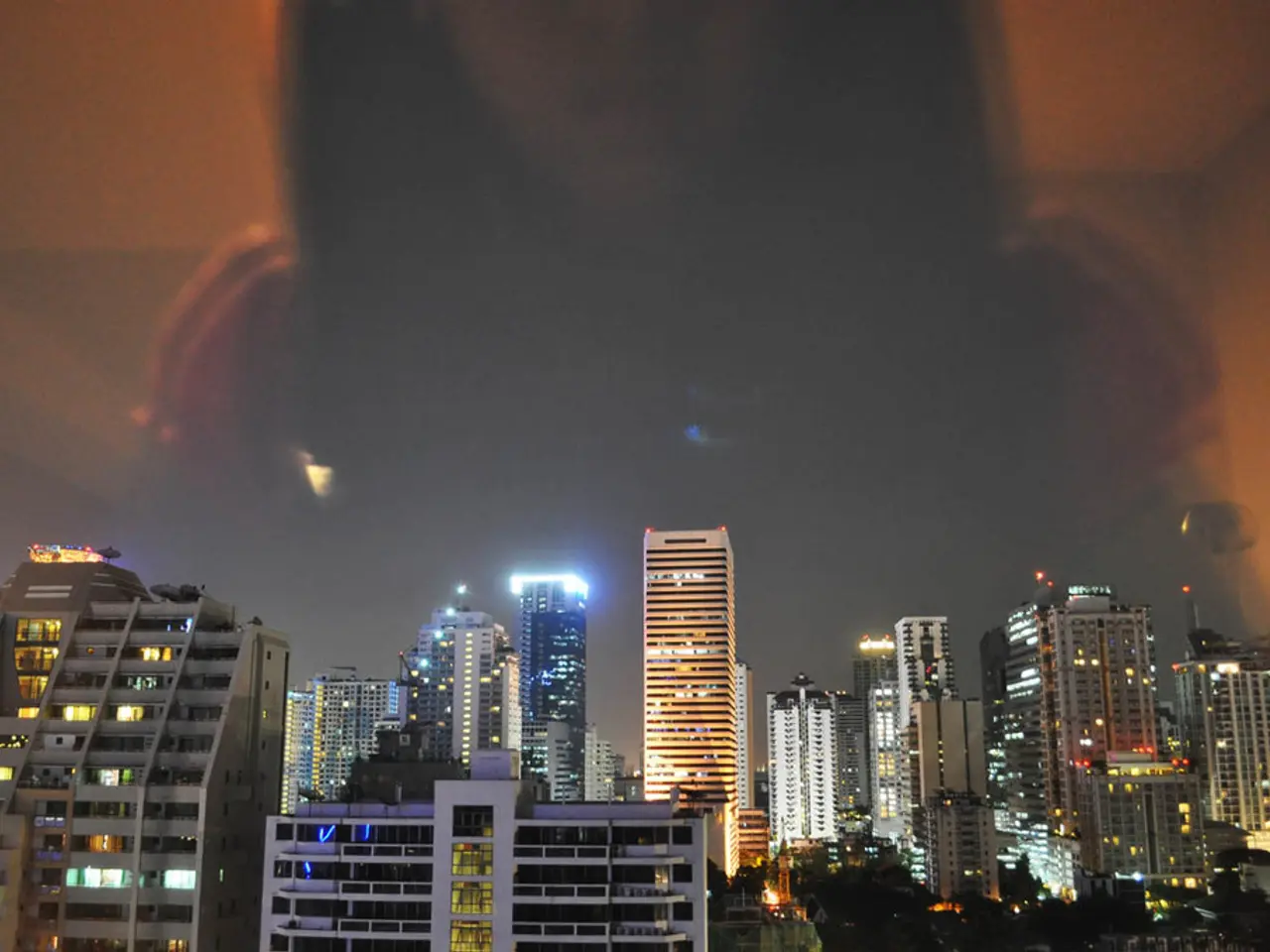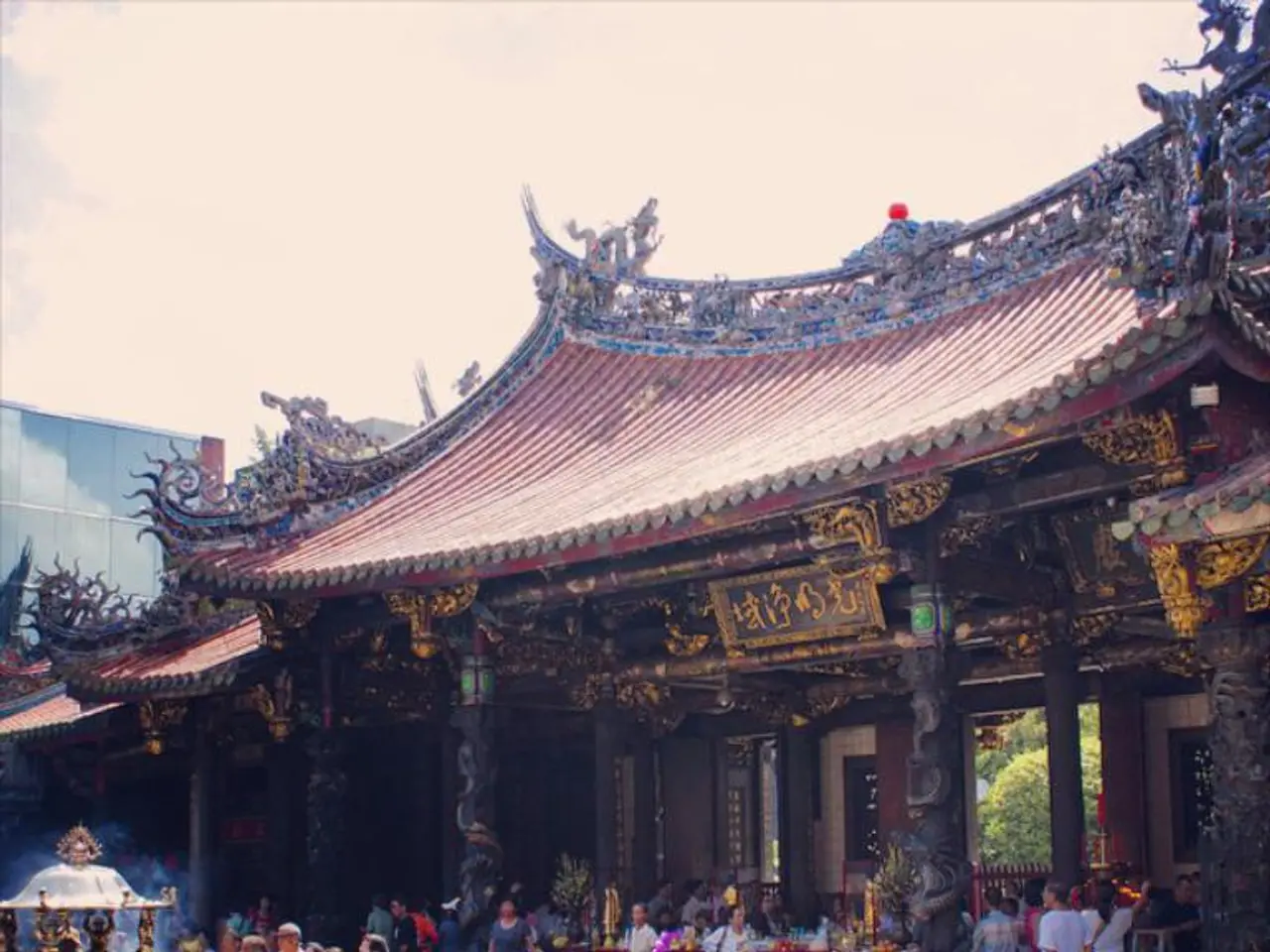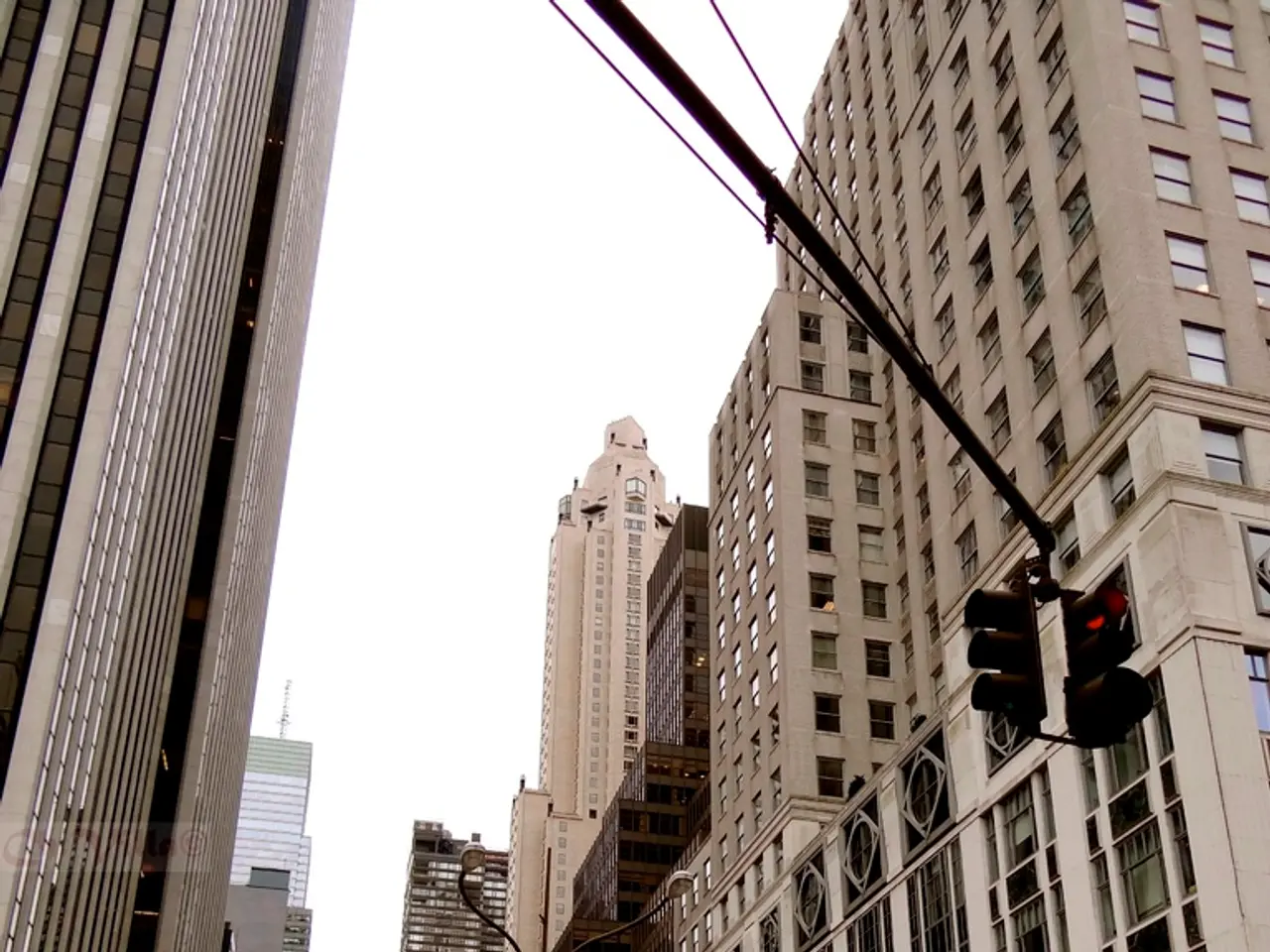Karlsruhe climate project construction causes significant traffic congestions
Karlsruhe's Sustainable Urban Development: Modernizing Street Lighting and Traffic Control Systems
In the heart of Baden-Württemberg, Karlsruhe is taking a significant step towards sustainable urban development with the conversion of its street lighting and traffic control systems to energy-efficient LED technology. This project forms part of a larger municipal climate protection project, led by Stadtwerke Karlsruhe, and aims to modernize the city's infrastructure while actively promoting environmental and species protection.
The focus of the climate measures in Karlsruhe is the conversion of street lighting to modern LED systems. This change offers numerous benefits, with LED lights consuming up to 80% less electricity compared to conventional lighting, significantly reducing the carbon footprint associated with city lighting. LEDs also have longer lifespans, requiring less maintenance and generating less material waste.
The traffic signal modernization is another crucial aspect of the project. Traditional incandescent or halogen traffic lights are being replaced with LED arrays, which have lower energy demands, increased light output, and longer durability. This contributes to energy savings and reduces environmental impact. The enhanced traffic control systems using LED technology can incorporate features like specific traffic signals for public transport and energy-efficient operation, optimizing traffic flow and potentially reducing congestion-related emissions.
The project involves temporary traffic disruptions to facilitate the replacement and upgrade of existing infrastructure to these sustainable LED solutions. The combination of reduced energy use, longer-lasting equipment, and smarter traffic management aligns with broader climate goals to lower urban energy consumption and greenhouse gas emissions.
The construction site, located on one of Karlsruhe's most important traffic axes, has caused closures on the South Bypass and Ettlinger Allee. Specifically, the closure on the exit 2 of the South Bypass towards the city center and on the on-ramp Ettlinger Allee towards Karlsruhe-Durlach will start on August 11 and last until August 15. Construction phase two of the project, starting on August 11, will involve the full closure of the ramps mentioned earlier.
Despite these temporary disruptions, there are no restrictions for public transport, pedestrians, and cyclists during the construction work. Traffic safety is increased through intelligent lighting control and new display boards.
An often overlooked benefit of the project is its positive impact on nocturnal insect habitats. The use of warm white light with reduced blue content preserves insects' night-time environments, making the LED systems insect-friendly. This is a small but important contribution to local biodiversity.
The reduction in light pollution in the city is another positive outcome of the project. By switching to LED systems, the city is not only becoming more energy-efficient but also creating a darker, more natural skyline, benefiting both humans and wildlife.
As the project progresses, many citizens of Karlsruhe remain unaware of its nature and benefits. However, this small but impactful initiative is a testament to the city's commitment to mobility, environmental protection, and modern infrastructure, even with temporary detours and patience required. The project is part of a long-term sustainable urban development project, demonstrating Karlsruhe's dedication to a greener, more energy-efficient future.
Environmental science plays a crucial role in improving the city's climate-change strategies through advancing the LED technology implemented in the street lighting and traffic control systems modernization. This technological upgrade, driven by environmental-science insights, not only promotes energy efficiency and reduces greenhouse gas emissions but also positively impacts insect habitats and minimizes light pollution.




